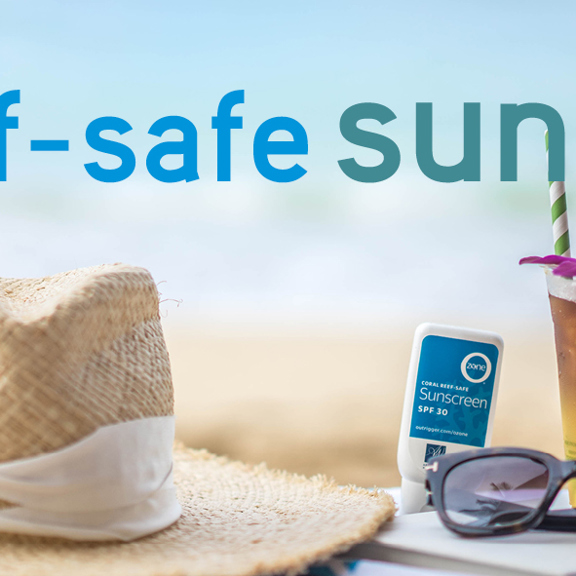Choisissez une langue

Comment sauver les récifs coralliens ? Pas de mauvais écrans solaires.
Nous avons tous entendu dire que notre crème solaire pouvait nuire à la vie marine, mais qu'est-ce que cela signifie exactement ?
Les récifs coralliens sont précieux pour la santé de la planète et la crème solaire est importante pour la nôtre, et heureusement, il existe des moyens de protéger les deux! Saviez-vous également que les récifs coralliens contribuent à purifier l'eau, protègent les côtes de l'action des vagues et des tempêtes, et fournissent des habitats et des abris à une grande diversité d'espèces marines ? Malheureusement, plus de la moitié des récifs coralliens de la planète sont menacés par l'augmentation de la température des océans et la pollution.
Afin de protéger ces ressources inestimables, certains pays adoptent des lois visant à limiter les substances chimiques nocives contenues dans certaines crèmes solaires et certains produits cosmétiques. Hawaï a adopté une loi qui, à partir de janvier 1, 2021 interdira la vente à Hawaï de crèmes solaires contenant des substances chimiques nocives (comme l'oxybenzone ou l'octinoxate). Des recherches ont montré que ces produits chimiques peuvent contribuer au blanchiment des coraux, à leur déformation et à leur mort. Lorsque nous appliquons ces produits sur notre corps et que nous allons nous baigner, ou même que nous les éliminons sous la douche, ils finissent dans nos océans.
C'est ici que vous intervenez.
La meilleure protection solaire à utiliser contient des ingrédients minéraux naturels tels que l'oxyde de titane ou l'oxyde de zinc. Plutôt que d'être absorbées par la peau comme le font les crèmes solaires chimiques, les crèmes solaires minérales créent une barrière entre notre peau et le soleil pour réfléchir les rayons du soleil. Les étiquettes peuvent parfois prêter à confusion ou induire en erreur. Il convient donc de rechercher les produits dont les ingrédients actifs sont le titane ou l'oxyde de zinc. Nous pouvons également choisir de porter des vêtements protecteurs lorsque nous nous exposons au soleil ou d'éviter de sortir lorsque le soleil est le plus fort.
Heureusement, il existe aujourd'hui de nombreuses marques de crème solaire qui nous permettent d'être à la fois à l'abri des récifs et du soleil. Les centres de villégiature Outrigger du monde entier promeuvent et fournissent des écrans solaires respectueux des récifs depuis 2014, et aujourd'hui, ces options respectueuses des récifs sont disponibles dans la plupart des pharmacies ! Nous pouvons être sûrs qu'avec l'augmentation du nombre de personnes qui choisissent des écrans solaires minéraux, nous verrons de plus en plus d'options qui nous maintiendront, nous et nos océans, en bonne santé.
Vous avez encore des questions ? Envoyez-les nous sur Facebook ou apprenez-en plus sur Outrigger's Zone, le programme de conservation des récifs d'Outrigger, ici.
Vous célébrez encore la Journée mondiale des océans ? Nous aussi ! Nous en faisons un mois entier sur les médias sociaux tout au long du mois de juin. #we🧡ourcoralreefs
ml?emailAddress=" scrolling="no" style="hauteur :280 px;" frameborder="0 ">